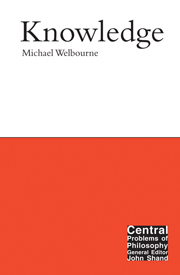1 - Beginning with Plato
Summary
Preamble
Plato was the first philosopher in the Western world to think seriously about the nature of knowledge. To him we owe most, if not all, of our basic philosophical questions on the subject, and he invented one way of addressing the issues which, in the past half century or so, after many hundreds of years, has come to dominate the field. I am going to use him in this chapter to introduce some important themes.
Plato's interest in knowledge is twofold. First, it is, for him, one among many proper topics for philosophical enquiry. It is something that human beings value, alongside justice, love, virtue, and beauty, to name a few other subjects of his investigations; because we think these things are valuable, it is natural that anyone of philosophical bent should want to understand clearly what they are. If we want people to act justly, for example, as we surely do, we need to know what just action involves. Similarly, if we want to obtain knowledge, it behoves us to get clear about what it is we want to obtain. But, secondly, as Plato conceives of it, knowledge is bound to be of special interest to anyone engaged in any philosophical enquiry at all, because knowledge, in a sense, is the object of all of them. Take the Republic. It is about justice.
- Type
- Chapter
- Information
- Knowledge , pp. 1 - 22Publisher: Acumen PublishingPrint publication year: 2001



